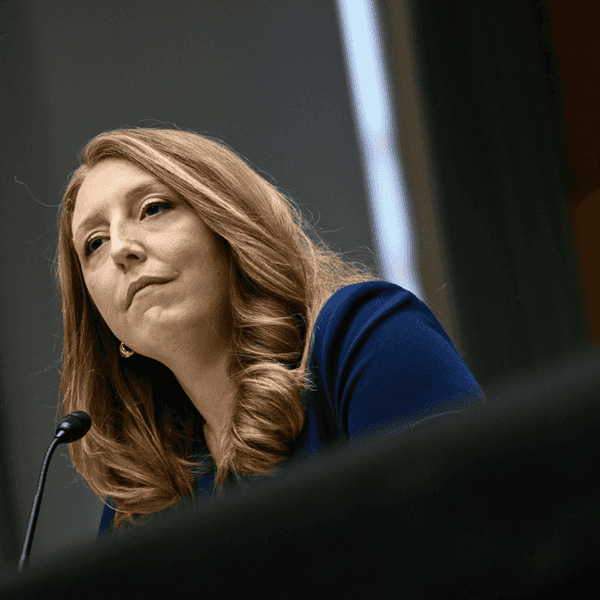By Josh Noel, Chicago Tribune (TNS)
Atlanta’s SweetWater Brewing Co. began distributing beer in Chicago this week, but its most notable beer at the moment might be the one that’s missing.
The Binny’s Beverage Depot in Lincoln Park has declined to stock SweetWater’s Happy Ending imperial stout due to what the store’s beer manager called the “sexist, borderline racist” artwork on the bottle.
Happy Ending (a reference to male sexual climax, presumably after a massage) features images on its bottle that include a box of tissues, the face of a man achieving what looks to be the pinnacle of pleasure and the silhouette of a geisha. It all added up to a bit more than the store’s beer manager, Adam Vavrick, was comfortable putting on shelves.
“This label is about a female Asian sex worker manually masturbating a man…and cleaning up…with tissues,” Vavrick said. “Why is that appropriate on a beer label?”
It’s a question that has been increasingly asked in the rapidly growing craft beer industry. Responding to various labels construed as sexist — usually showing women in various states of undress or in suggestive poses — Time Out Chicago published a piece last year beneath the headline, “Time to grow up, breweries.” Chicago-based blog Guys Drinking Beer asked, “Why does craft beer suddenly seem to have a problem with women?” And the founder of Twins Cities beer shop The Four Firkins published a blog post in February called, “Let’s talk about sexist beer labels.”
Though mostly just chatter until now, Vavrick sending back three cases of Happy Ending — 36 large-format (22-ounce) bottles — is among the rare instances of a Chicago store declining to carry a beer due only to its label. According to SweetWater’s Chicago distributor, Lakeshore Beverage, no other store, in the Binny’s chain or otherwise, refused to stock the beer.
Vavrick said he became aware of the label when SweetWater beer arrived in Chicago this week, and a “visibly upset” male employee brought it to his attention. Vavrick said he polled three more Binny’s staff to gauge their feelings.
“They all felt the same way — it’s gross and it has no place in here,” Vavrick said. “A female employee said she wouldn’t be comfortable recommending that beer to anyone.”
Vavrick announced his decision this week on social media: “Breweries: One thing I simply do not tolerate in my department is sexist or racist beer labels. I demand better and will not carry them,” he wrote on Twitter. (With more than 100 “favorites,” Vavrick said, the tweet was his most popular ever.)
Lakeshore Beverage picked up the three cases of Happy Ending the next day. Vavrick said he never considered blackballing the brewery entirely; at least four other SweetWater beers, including its popular 420 Extra Pale Ale, are on the shelves.
In an interview this week, SweetWater founder Freddy Bensch said he has never heard a complaint about the artwork on the eight-year-old beer that until now has been available in mostly Southern states. It was simply intended as a joke, he said.
“No harm was intended,” Bensch said. “We maybe didn’t think this all the way through.”
He said the brewery would take corrective action regarding the Happy Ending bottle, though he didn’t specify what that might be.
“We’re going to be thoughtful about it and make it right,” Bensch said.
For Vavrick, and others who have claimed offense, the blowback was exacerbated by two factors: The text on the bottle describes the beer as “sporting a huge dry hopped stiffy resulting in an explosive finish!”
And the other was a promotional video uploaded to the Internet two years ago by the brewery that shows a man standing behind a bar taking a sip of Happy Ending, then staring into the distance and exclaiming, “Oh, god, that’s good!” A woman dressed as a geisha then rises from behind the bar, fans her face, offers a suggestive look, then descends back below the bar. Bensch, who said he was unaware of the video until this week, said he had it taken down.
Jason Alvey, founder of The Four Firkins, which has sold craft beer in the Twin Cities metro area for seven years, said he has declined to carry “about five” beers during the last seven years due to “objectification of women or crass, lowbrow sexual innuendo humor.” One of the offending breweries, he said, he refuses to carry at all because it showed no contrition when he raised the issue. He declined to name that brewery.
Alvey said he doesn’t object to a “respectful portrayal of a pretty woman” on a beer label, but acknowledged that one person’s respectful can be too far for someone else.
“It can be a difficult topic,” Alvey said. “We’re trying not to get carried away with this and we’re trying to be realistic. The ones we’ve said we’re not going to carry are generally blatantly obvious.”
The issue of sexist beer labels has only become more pronounced as more breweries open, Alvey said. Since 2012, more than 1,000 craft breweries have opened in the U.S., bringing the national total to 3,418, according to the Brewers Association, a craft beer industry group.
“We’re getting more little breweries that don’t have any training or professional experience in marketing, and they think this kind of thing will get them attention or is funny,” Alvey said. “A lot of new breweries forget their customer base isn’t just young males.”
When a questionable label pops up, he said, he’ll discuss it with his staff of 16, and put the matter to a vote. SweetWater is not distributed in Minnesota, but Alvey said he wouldn’t carry Happy Ending.
“It’s juvenile frat boy humor,” he said. “If I see something damaging to the industry as a whole and insulting to women, I’m not going to carry it.”
The Chicago area saw a similar blowup last year when Rockford-based Pig Minds Brewing Co. released a beer called PD California Blueberry Ale — the “PD” standing for “panty dropper” — featuring a label that showed a pair of female legs jutting from a short skirt and underwear hitched down to just above the ankles. Beer bloggers and social media took Pig Minds to task, accusing the brewery of promoting anything from sexism to date rape.
When the summer-seasonal beer returns, it will be rebranded as “Happi Daze California Blueberry Ale,” and with a new label featuring smiley faces, said Pig Minds’ general manager and brewmaster, Carson Souza.
Like SweetWater, Souza swore there was no intention to offend with PD California Ale. The beer had been on draft at Pig Minds’ brew pub for two years — with the same artwork on the tap handle that appeared on the bottle — with no complaints. The owner of the brewery, Brian Endl, drew the artwork, which was sold as an aluminum placard that became popular with both male and female customers.
“We never had one person sit there and say ‘That’s terrible, you should take that down,'” Souza said. “Quite the contrary — they said how much is that placard? That’s cool.”
But he acknowledged that as breweries grow and reach wider audiences, the ability to offend increases. And in the era of social media, it can take mere hours for a beer label that barely raised an eyebrow for two years in a Rockford brewpub to incur the wrath of the Internet. The Guys Drinking Beer website, which publishes the Chicago-area beer labels approved each month by the Alcohol and Tobacco Tax and Trade Bureau, called PD’s art “the worst beer label ever produced” after it was approved last August. The Internet quickly agreed, and the “PD” label became a hotly discussed issue on Reddit within days.
Souza said the label was part light-hearted joke, part homage to beer history (think of the standard Oktoberfest dress, he said) and nod to a certain reality.
“Let’s face it, when people drink, they get laid — that’s both men and women,” he said. “It was just a joke. It takes a twisted mind to say that (the label) has something to do with rape.”
Though Souza said he was conflicted about changing the label, “the best business decision was to let PD subside.”
“We are not misogynistic and we are not sexist by any means,” he said. “We’re husbands, we have daughters and we are artists. But it was time to say goodbye to it. We offended too many people, and we don’t want to do that.”
Claudia Jendron, brewmaster at Evanston’s Temperance Beer Co., and one of the relatively few female brewmasters in the U.S., said that in her experience, the industry has no trouble accepting women. At beer festivals and public events, Jendron said, she feels just as respected as any male brewer.
“But this doesn’t help,” she said. “It puts women in a position that we have to fight a little bit harder to get back to the same level (as men).”
Marie Cummins, who blogs about beer and is a moderator for the Chicago Craft Beer Enthusiasts Facebook page, said craft beer is clearly becoming inclusive of women. Overwhelmingly male just five years ago, beer festival crowds have become about 40 percent female, she said. And while she takes offense at the Happy Ending bottle because “it’s so apparent that they’re saying this beer is really for a certain segment of the population that’s not me,” she doesn’t want to see the judgment of beer labels become too weighty.
“When you go over the line, as some of them have, it becomes obvious,” she said. “But you can’t get offended at every little thing. The moment you become too politically correct, you take some of the passion out of it.”
Photo: Pig Minds Brewing Co. via TNS








